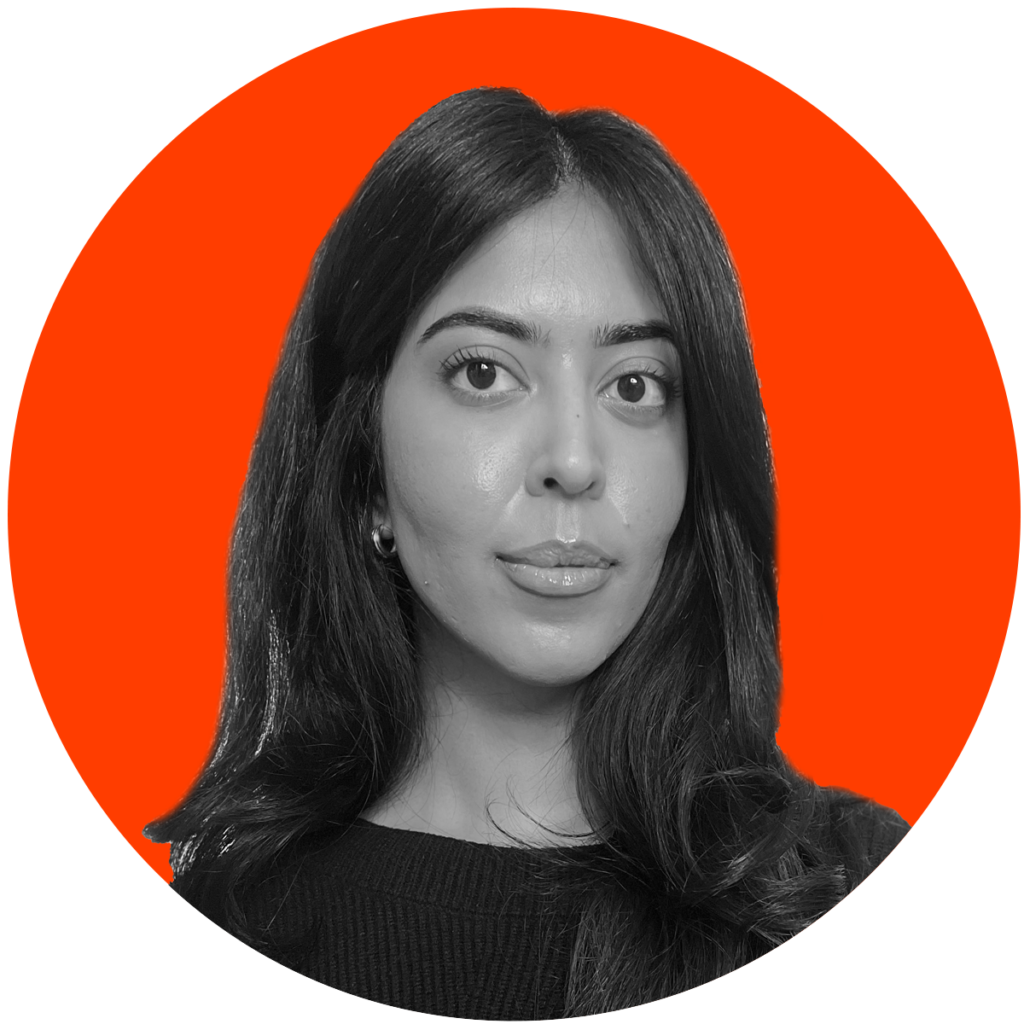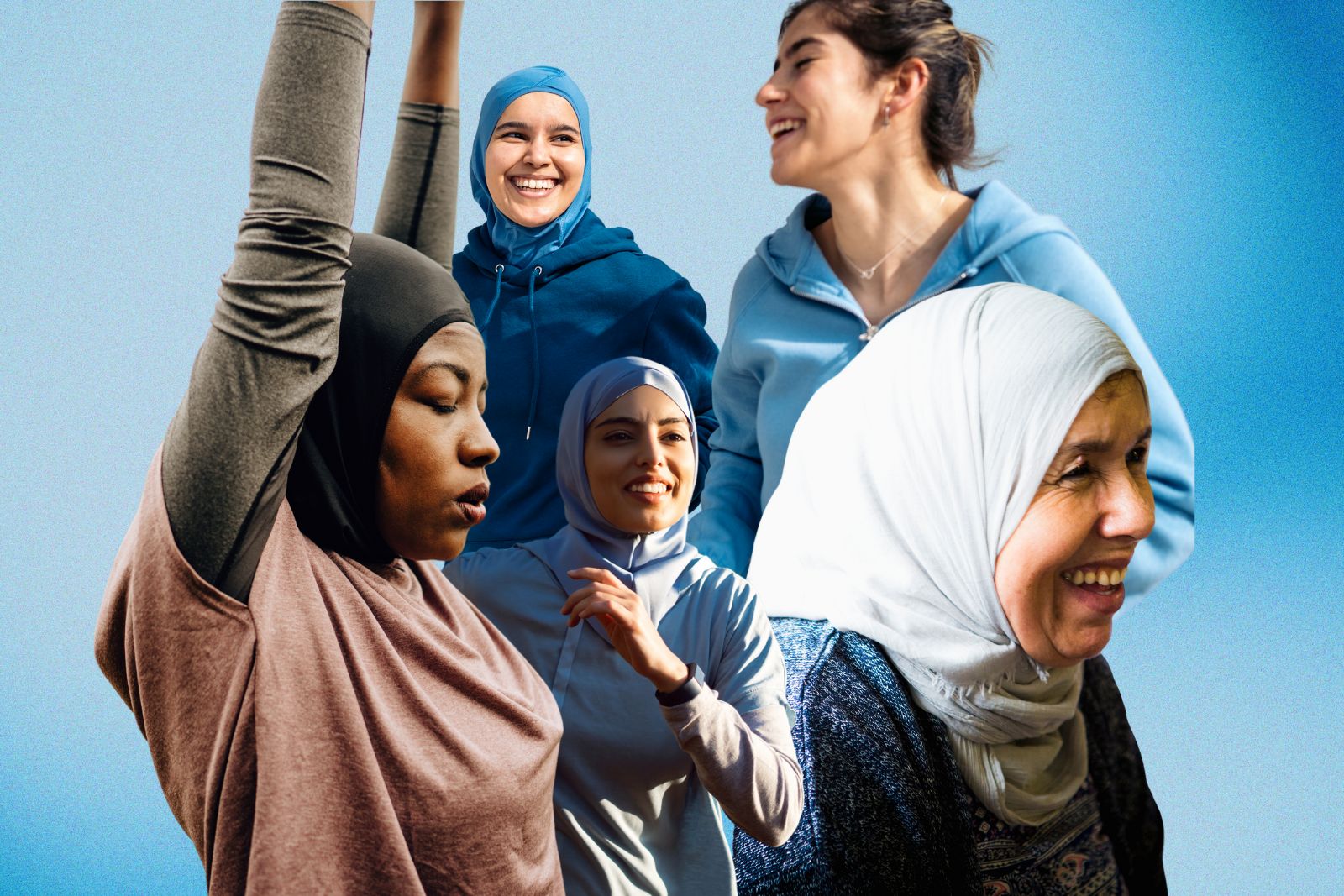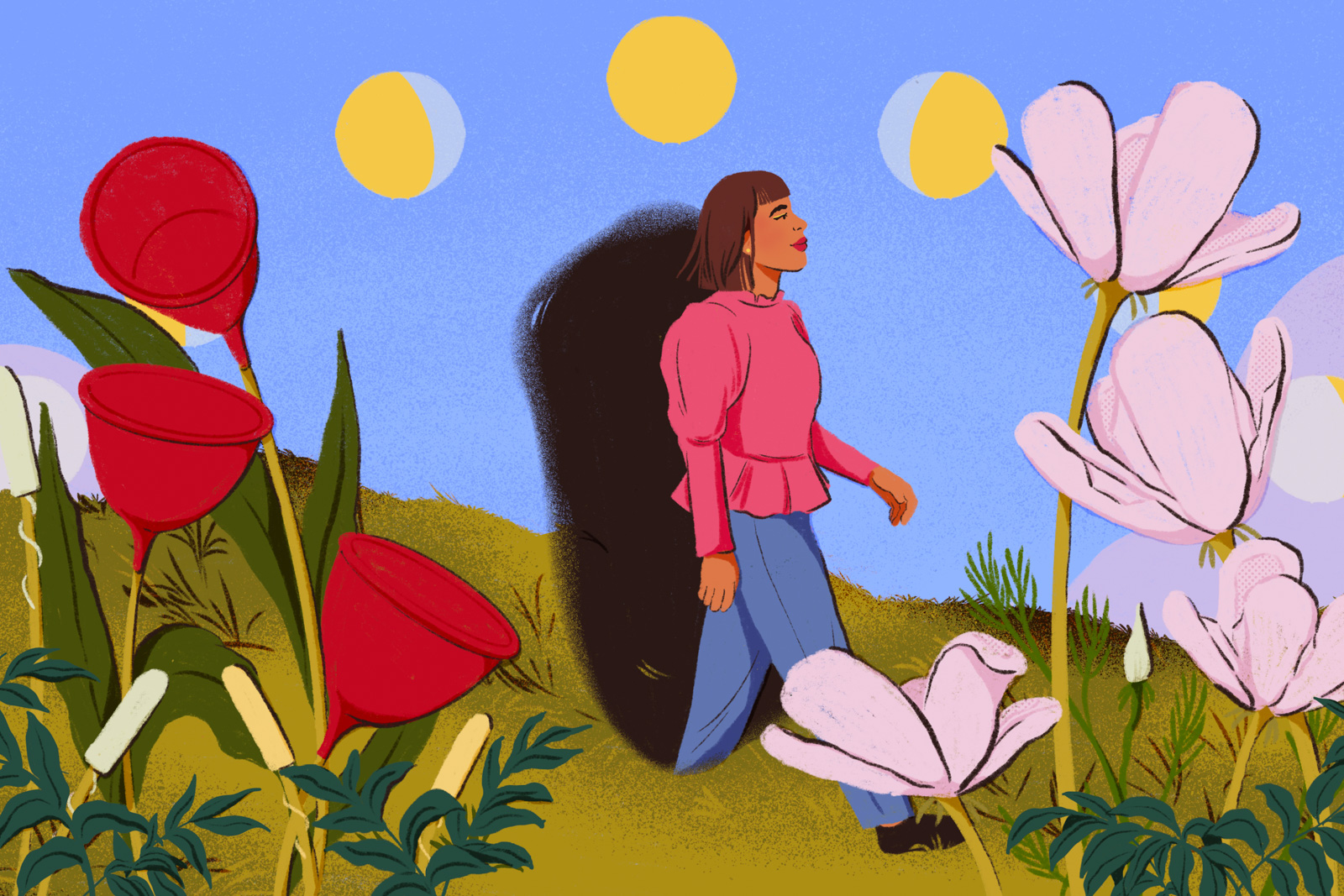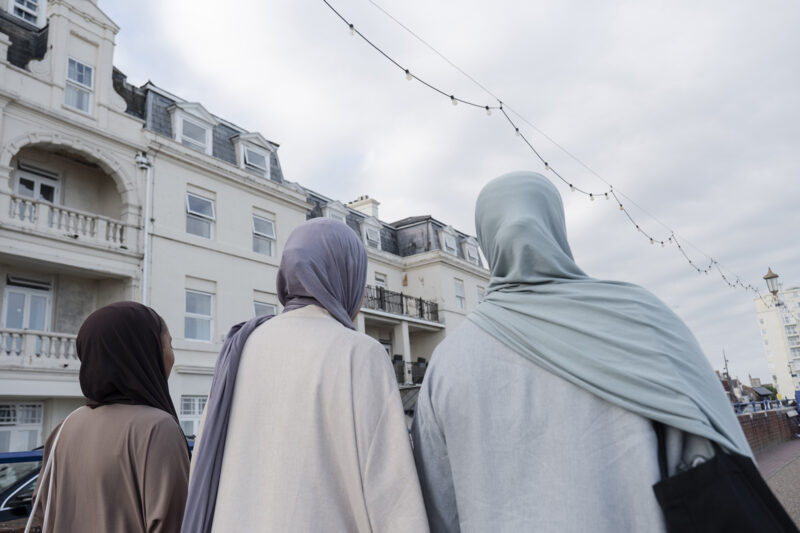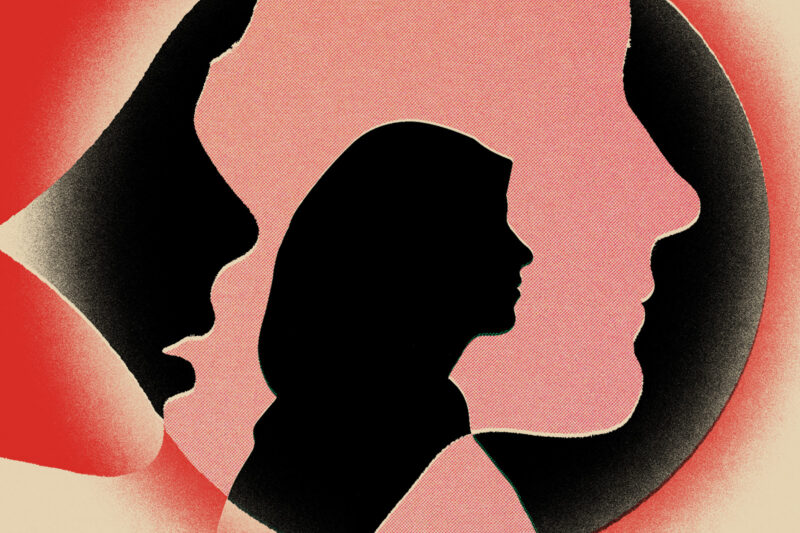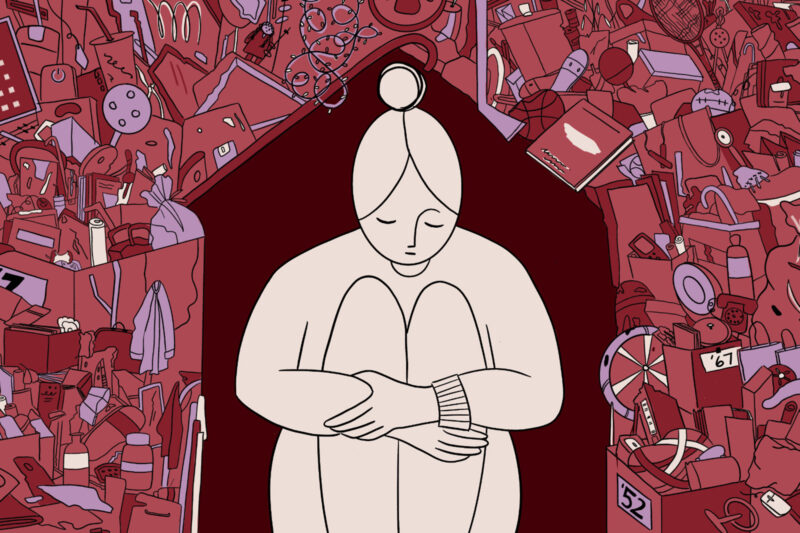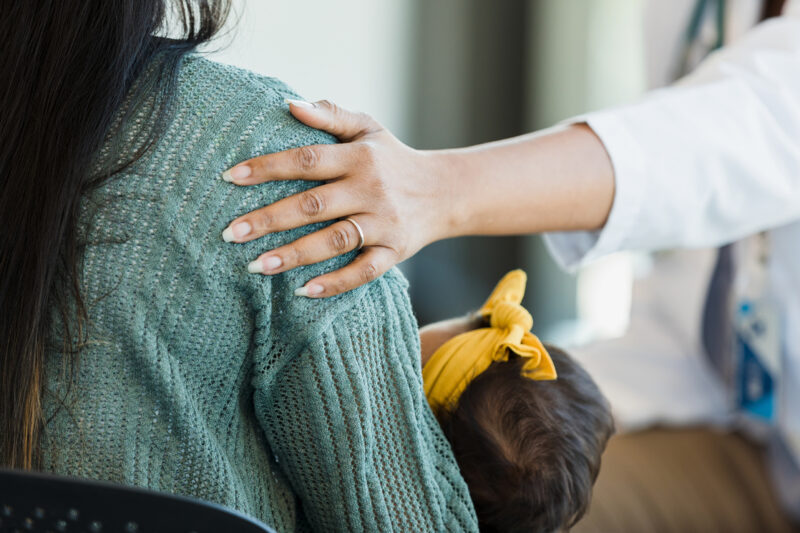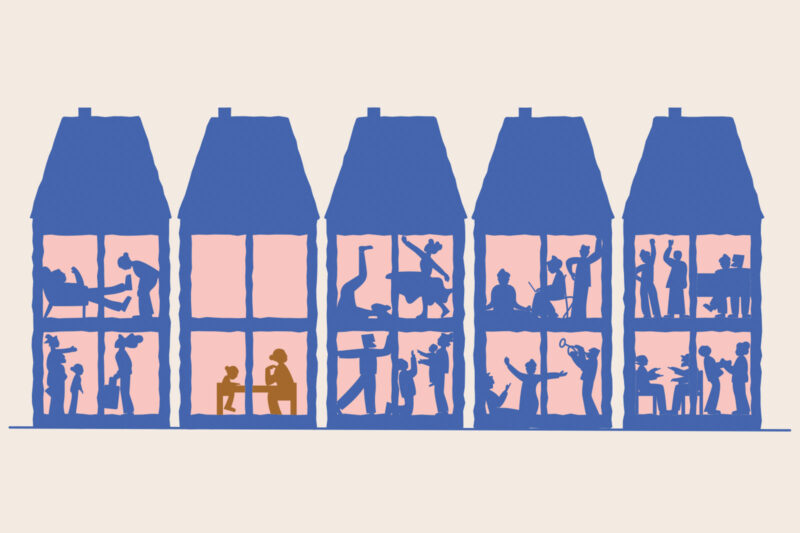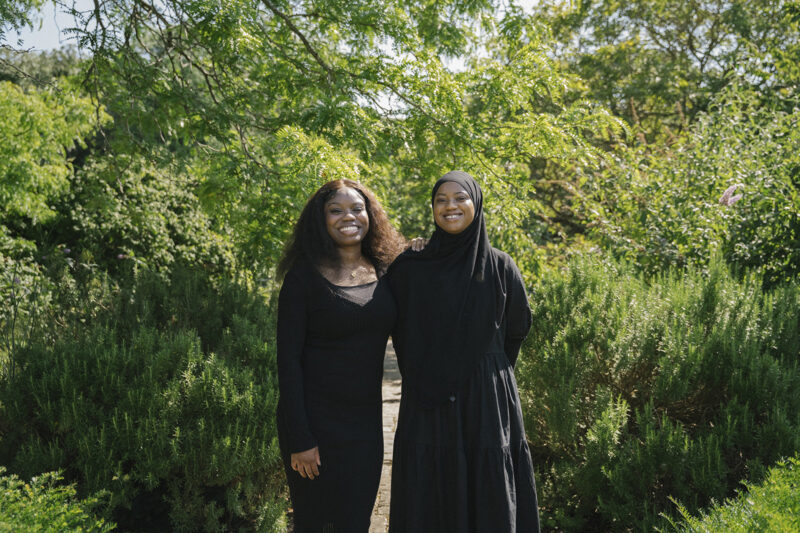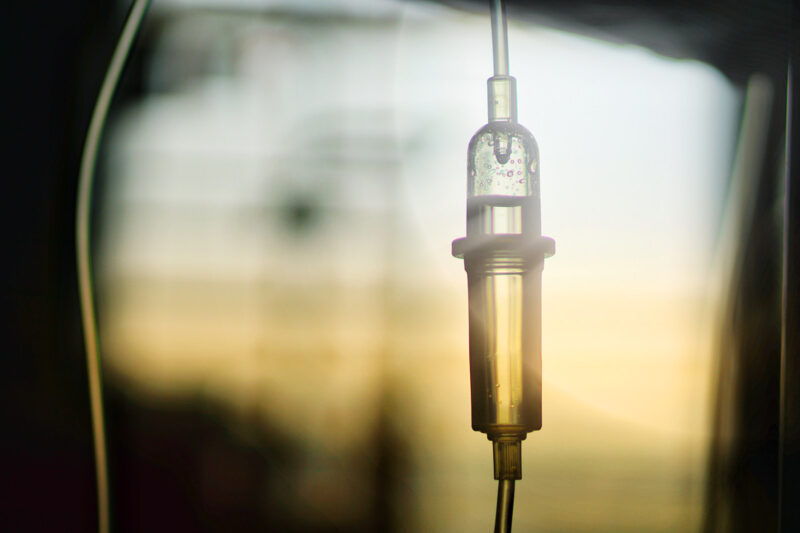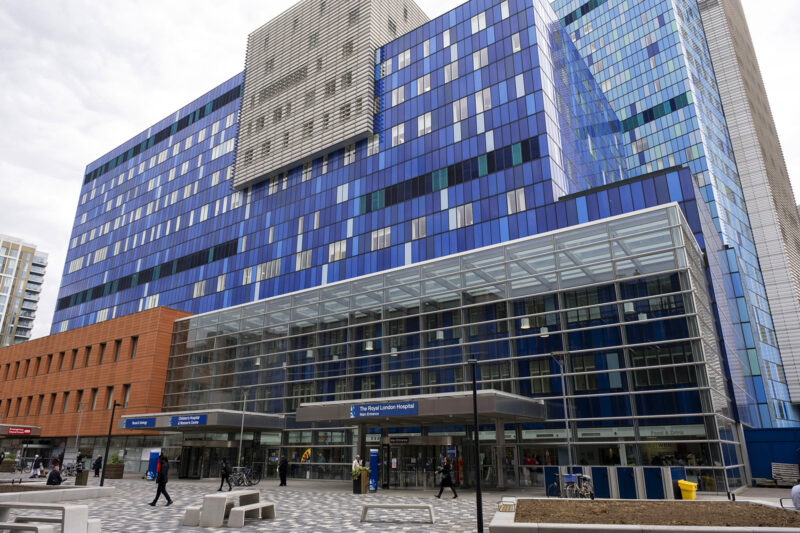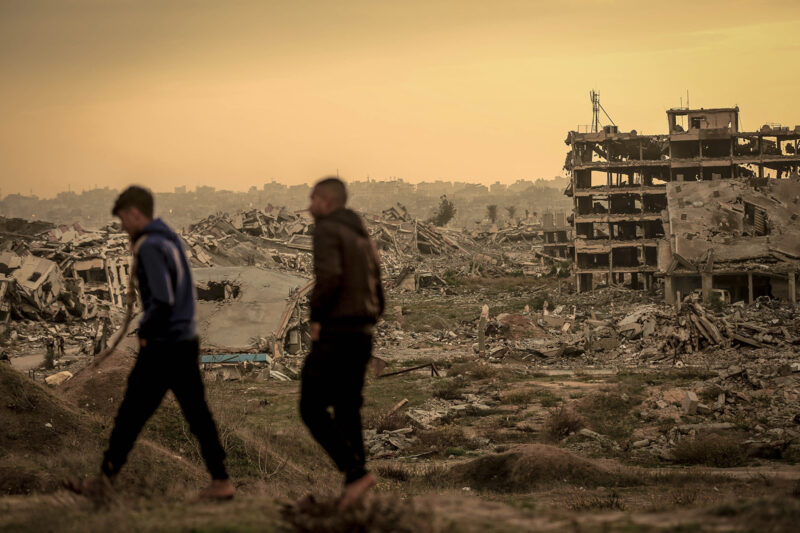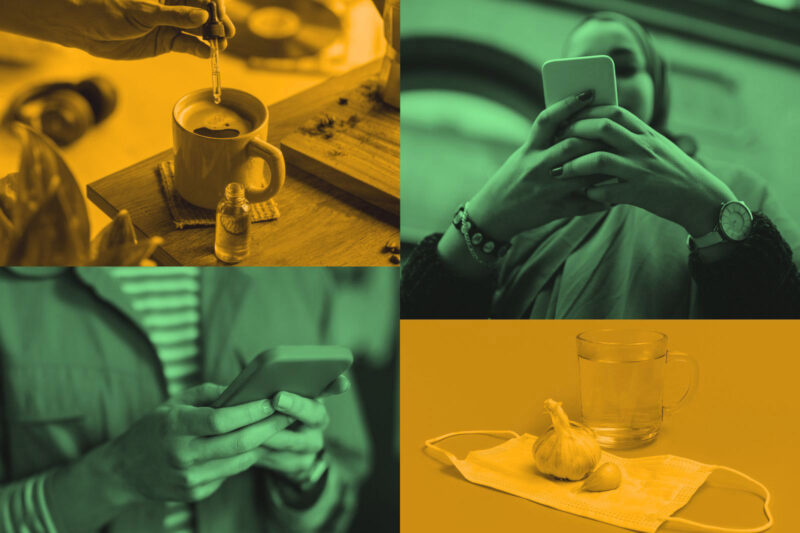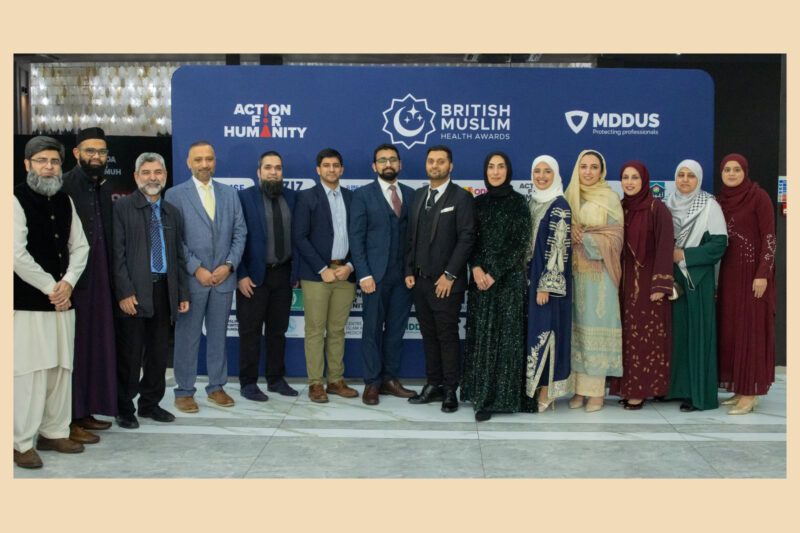‘If I’d been taught what endometriosis was, I’d have known sooner’
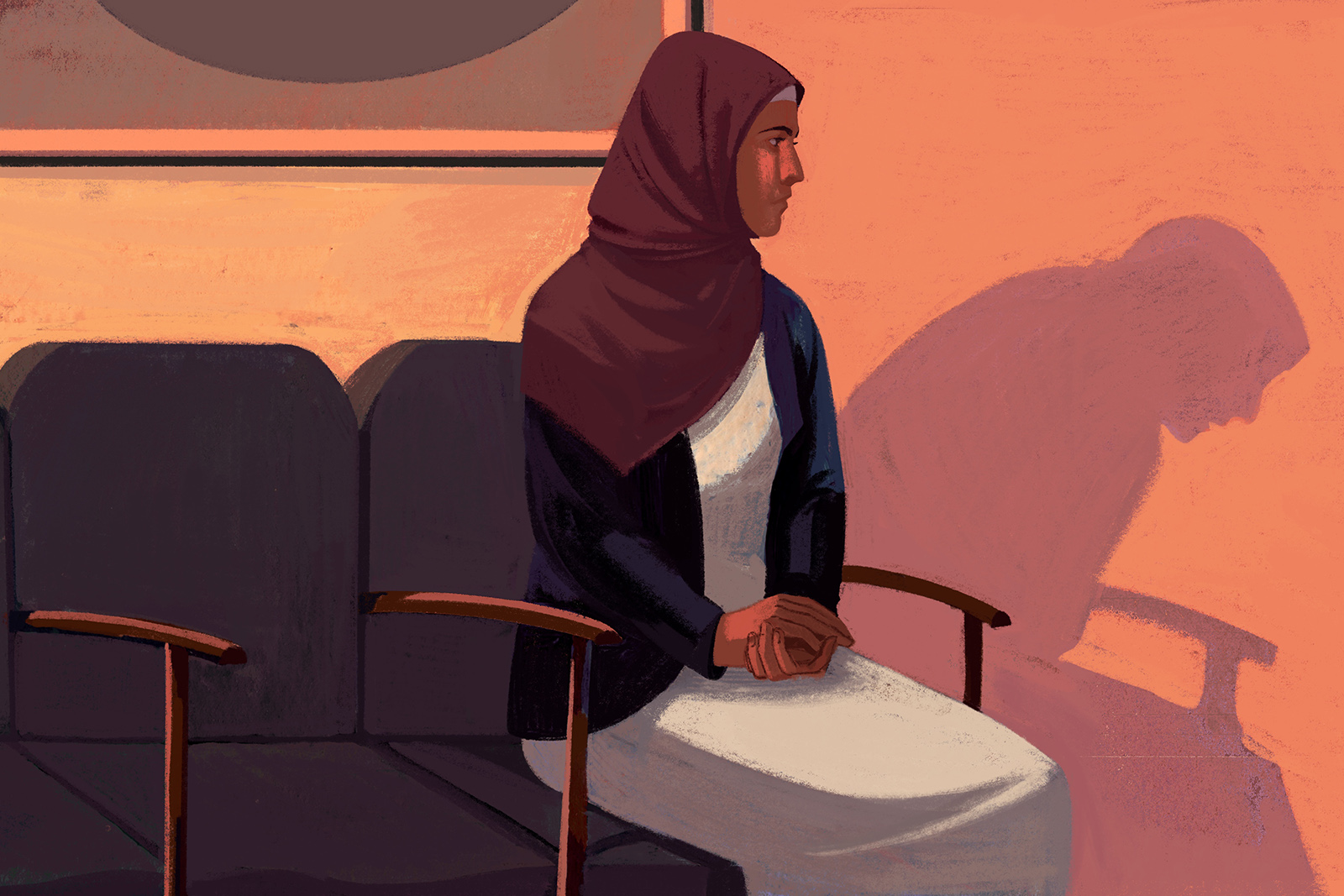
Cultural stigma and a lack of appropriate care have painful consequences for the menstrual health of Muslim women
“It’s like a block of ice is sitting on my brain and everything is numb,” says Hiba, 29, describing how she feels in the lead-up to her period. “I don’t go out, I cancel plans. It’s just really hard for me to do anything during that week.”
Hiba, who asked for her identity to be protected with a pseudonym, has yet to receive an official diagnosis, but suspects that she has premenstrual dysphoric disorder (PMDD), a debilitating mental health condition experienced before periods that, according to research published in the Journal of Affective Disorders in 2024, affects around one in 20 women in the UK.
She first told her GP about her symptoms in 2022, but her doctor was reluctant to draw any clinical conclusions. “I remember her saying this is just a part of PMS,” she says. “She said to do things I was already doing, like exercise and going out for walks and eating healthy. I thought, ‘This person is a doctor who knows a lot more than me,’ so I just said OK and left.”
While menstrual-related disorders are common among women in the UK, just under a third of those experiencing them have never sought medical help, according to figures cited by the Wellbeing of Women charity. Among Muslim women, that figure is believed to be even higher, owing to a combination of stigma within their communities surrounding menstruation and a lack of culturally appropriate health information within the NHS.
Related content
Hiba says that the poor mental health she experiences around the time of her period has affected every aspect of her life. “I don’t want to talk to anyone and replying to messages becomes really hard. I also get irritable, so I try to stay away from people, because if I say something I don’t mean I end up feeling even worse about myself,” Hiba says. “Within myself, I’ll feel really helpless. If I’m on my period, I also can’t get up and pray, so that makes things even harder.”
She then adds that her symptoms can include suicidal thoughts.
Lynsay Matthews, a researcher at the University of the West of Scotland who specialises in women’s health, says that while the overall state of women’s healthcare sets a “really low bar”, it is even worse for minority groups and people from poorer backgrounds.
Almost 600,000 people in England are currently on a waiting list for gynaecology hospital care, according to figures published by the Royal College of Obstetricians and Gynaecologists. Meanwhile, a 2021 survey by the Department of Health and Social Care found that more than four in five women have felt dismissed by healthcare professionals, unable to advocate for themselves to secure diagnoses and unable to ask questions after receiving one.
“A big issue for us in research is that pretty much every disorder among women is informed by research on white, middle-class women,” Matthews says. “In the UK there is a big drive to have more representation, but still studies are coming in at around 90% caucasian women, which just keeps reinforcing what works for white women and lacks important information for everyone else.”
Zakia Hussain, 42, began experiencing extremely painful periods around the age of 16. At the time, her GP prescribed the contraceptive pill to help manage her symptoms, but the underlying cause was never sought.
Related content
It was only at age 28 that she was diagnosed with endometriosis, after her employer flagged repeated absences because of her painful periods. “I had a laparoscopy, which found progressive stages of the disease,” Hussain says.
Hussain adds that cultural taboos surrounding periods contributed to her late diagnosis.
“Coming from a Bengali background, we didn’t really talk about periods at home,” she says. “Bleeding is quite a dirty thing. That’s what we are taught in our culture. You can’t fast, you can’t pray, so as a girl you think of it as being a punishment.
“I didn’t have anyone to speak to. I didn’t know that you’re not meant to have painful periods. I didn’t know what endometriosis was. If I had been taught, I could have known sooner.”
During the Covid-19 pandemic, the pain got worse and eventually led to a difficult choice for Hussain. “In February 2024, after going through lots of interventions, I made the tough decision to have a hysterectomy,” she says. “I’m still coping with the after-effects.”
Matthews also notes a lack of cultural competence within the healthcare system, meaning that many professionals do not have the necessary “awareness and understanding to have informed interactions with Muslim women”.
“The nuances of how to speak about certain things or tailor advice to them is missing,” she says. “That can put people off even approaching healthcare professionals in the first place.”
That was the case for Yusra, a 28-year-old teacher from London, who recalls the nonchalant manner in which her GP informed her she had polycystic ovary syndrome (PCOS) and the effect it could have on her fertility.
“He was very to the point. He said there was nothing to worry about unless I was planning to get pregnant, because it can impact fertility. I wasn’t sexually active, so I didn’t know what to do with that information.”
Yusra, who asked not to share her surname, said her GP’s dismissive nature also made her feel unable to ask questions. “I didn’t know anything about PCOS, what it meant, or how it would affect me,” she says. “When somebody who is seen to have more knowledge than you is telling you it’s not a big deal, I didn’t feel like I could say anything, but internally I remember thinking, ‘Oh my god I’m never going to be able to have kids.’ I just had a little cry and left.”
According to a 2024 survey conducted by Muslim Census and Taahirah, a website and forthcoming app designed to improve Muslim women’s menstrual health, 34% said cultural taboos deterred them from actively seeking information about their periods. Meanwhile, 55% said they were struggling to access reliable information appropriate for both their health concerns and their faith. Of the women surveyed, 85% said that existing period tracking apps such as Flo and Clue weren’t meeting their needs.
“There is currently no inclusive health technology built for Muslim women,” says Farzana Salik, founder of Taahirah. “Despite advances in healthcare and digital tools, almost none are designed with our needs in mind. Combined with limited access to education and deep-rooted stigma around menstrual health, this leaves many women confused, isolated, and unsure of where to turn for support.”
Salik says existing menstrual health resources fall short of giving advice about how periods affect users’ religious obligations.
“For Muslim women, menstruation carries spiritual implications. Certain acts like prayer and fasting are lifted during valid menstrual bleeding, out of Allah’s mercy. But for those living with conditions like PCOS or endometriosis, irregular bleeding can make it difficult to know whether you’re experiencing a period or not. That’s exactly why we created Taahirah,” she adds.
Some apps also share content that is inappropriate for Muslim women, including that of a sexual nature. For example, Flo offers to help women learn “how to make masturbation work”. Salik wants to provide women with faith and culturally sensitive health information via the Taahirah app, which is scheduled for launch later this year.
Since September 2024, Hussain has been volunteering with Endometriosis UK to help other women get diagnosed sooner and navigate life with the condition. “Women need to take as much information to the GP as they can,” she says. “Things like a period diary, when you experience symptoms and what kind of pains you have. You need to bombard them and advocate for yourself, which I’ve learned is the best thing to do.”
 Newsletter
Newsletter

